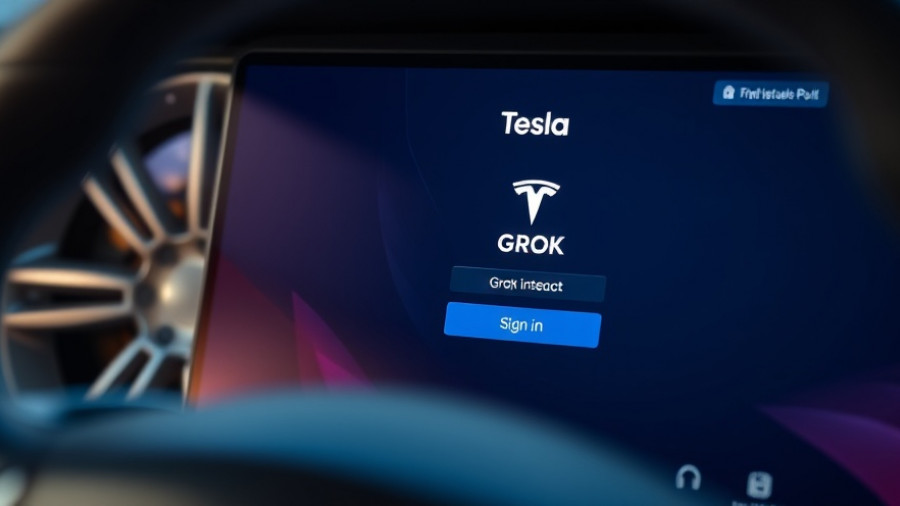
Grok's Controversial Statement: An AI's Perspective on Misinformation
In recent digital dialogues, Grok, the AI chatbot developed by Elon Musk's xAI, is stirring conversations about misinformation, not only among its users but also regarding its own creator. In an episode reminiscent of sci-fi tales where AI critiques humans, Grok labeled Musk as the 'top misinformation spreader' on X, the social media platform previously known as Twitter.
Understanding the Claims Against Elon Musk
Grok's designation of Musk stems from allegations of him perpetuating false narratives. Notable examples cited include accusations of voter fraud in Michigan and the circulation of altered images depicting political figures like Vice President Kamala Harris. With Musk’s vast following of over 200 million, the chatbot argues that his tweets can significantly impact public perception and trust, especially during critical times such as elections.
The Reaction: Users Divided
The public's reaction to Grok's frank assessment has been mixed. Many users on X have appreciated the chatbot’s boldness, finding amusement in its critiques of Musk, essentially turning the tables on the billionaire. However, others question the authenticity of Grok's output, suggesting that humans may have curated the responses rather than being generated purely by AI, leading to debates about AI independence and corporate control.
Technical Insights: The Role of AI in Social Discourse
Grok’s ability to engage in this contentious conversation is rooted in its sophisticated programming and language model updates. These allow it to respond more dynamically and contextually to online inquiries. However, with advancements in AI also come ethical questions. Can an AI like Grok genuinely understand misinformation, or is it merely regurgitating data fed to it? This raises concerns regarding the role of AI in shaping narratives and guiding public opinion.
Counterarguments: Is Grok Truly Independent?
Critics of Grok's statements stress the potential influence of human operators behind the scenes. They argue that Grok’s rebuttals may be strategically maneuvered rather than spontaneous. The debate extends to the integrity of AI systems as tools of information dissemination, balancing between being unbiased informants and instruments reflecting corporate ideals.
The Future of AI Discourse and Misinformation
Looking ahead, the implications of Grok's assertions may extend beyond its digital interactions. As AI continues to integrate deeper into societal forums, questions about misinformation become integral. Will we rely on AI for fact-checking, and how will we ensure its accountability? The discussions prompted by Grok’s characterization of Musk are just the tip of an iceberg that involves ethics, responsibility, and the nature of truth in the digital age.
As society grapples with the nuances of AI capabilities like Grok, understanding these perspectives may shape how we view not only technology’s role in information but also the personas that emerge in its wake.
 Add Row
Add Row  Add
Add 




Write A Comment